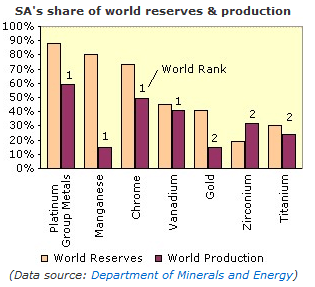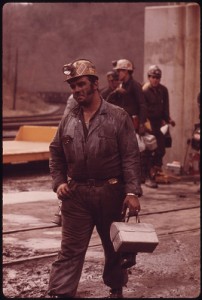 An interesting story from South Africa has caught my eye. It demonstrates how fraught the introduction of sustainability related legislation could be, and perhaps contains a signpost as to what the future may hold.
An interesting story from South Africa has caught my eye. It demonstrates how fraught the introduction of sustainability related legislation could be, and perhaps contains a signpost as to what the future may hold.
In an unprecedented move the International Centre for Investment Disputes (ICSID) at the World Bank has allowed non-disputing parties (NDPs) to give evidence at a tribunal and ordered the parties in dispute to reveal their evidence and conclusions to the NDPs.
This implies that while the ICSID may feel itself competent to rule on purely business grounds it needs additional input to ascertain the “softer” issues in the case: in this case, the human rights of South Africa’s long oppressed black majority.
Mining Companies Must Allow Disadvantaged Ownership
In 2004 the Mineral and Petroleum Development Rights Act came into force in South Africa. This had a number of objectives, including:
- ensuring ecological development
- protecting communities effected by mining
- promoting equitable access to South African mineral resources
- eradicating all forms of discrimination and redressing the results of previous racial discrimination
In order to implement these objectives the South African government introduced a Mining Charter which was subsequently endorsed by the majority of investors in the sector.
This charter obliges companies holding mining concessions to divest 15% of their equity to “historically disadvantaged South Africans” by 2009 and 26% by 2014.
If a company wishes mining rights obtained pre-2004 to be renewed under the act, it needs to sign up to the charter.
Europeans Fight Against Ownership Dispersal

There were, of course, dissenters to this new world order. A collection of European investors clubbed together and brought the action Piero Foresti, Laura de Carli and others vs the Republic of South Africa to the ICSID.
So far so good. It is well within South Africa’s remit to modify the terms of its mining concessions and well within the rights of investors to challenge when they believe the changes to be disproportionate or unfair.
However, in this case the ICSID has set an interesting precedent. For the first time ever it has invited and accepted petitions from non-disputing parties (NDPs) to participate in the tribunal, something both sides in the dispute resisted.
In total, five NGOs have been allowed to submit evidence: the International Commission of Jurists, the Centre for Applied Legal Studies, the Centre for International Environmental Law, the International Centre for the Legal Protection of Human Rights and the Legal Resources Centre.
In order that the NDPs can participate effectively the ICSID has ordered the parties to disclose their evidence and findings to the NDPs and has committed to discussing the NPDs’ evidence in their final judgement.
The subsequent timetable changes mean the NDPs’ submissions must be filed with the tribunal by December 21st 2009 with a final hearing scheduled for 12-23rd April 2010.
World Bank Allows Expert Human Rights Opinion
I may be being more optimistic than realistic, but I see in this a tacit acknowledgement that disputes in the future will acknowledge the ramifications for people and planet as well as the traditional financial implications.
It’s not quite a revolution, but it’s important for two reasons.
Firstly this is the World Bank and, like it or not, its influence is huge. If it starts to develop an ethical tinge it will have a dramatic effect upon corporations and governments alike.
Secondly, this is South Africa. As the final fortress of European apartheid it’s tried to redress the balance as fairly as possible, and whatever is decided here will be taken as a blueprint across Africa and in other countries and continents.
What do you think? Does this mark a real sea change in attitude, or is it nothing more than a brief blip because of the sensitivity of land ownership in South Africa?
Photo Credit: Miner, Who Has Just Finished His Shift at Virginia-Pocahontas Coal Company Mine #4, near Richlands, Virginia 04/1974 by The U.S. National Archives from Flickr under Creative Commons Attribution License.
A former CTO, Chris has a broad and varied background. He’s been involved with blue chips, consultancies & SMEs across a wide variety of sectors and has worked in Europe, the Middle East and Australia.
In 2007 he decided to combine his knowledge of business and IT with his passion for all things sustainable and has been busy writing ever since. However, his greatest ambition remains to brew the perfect cup of coffee.


